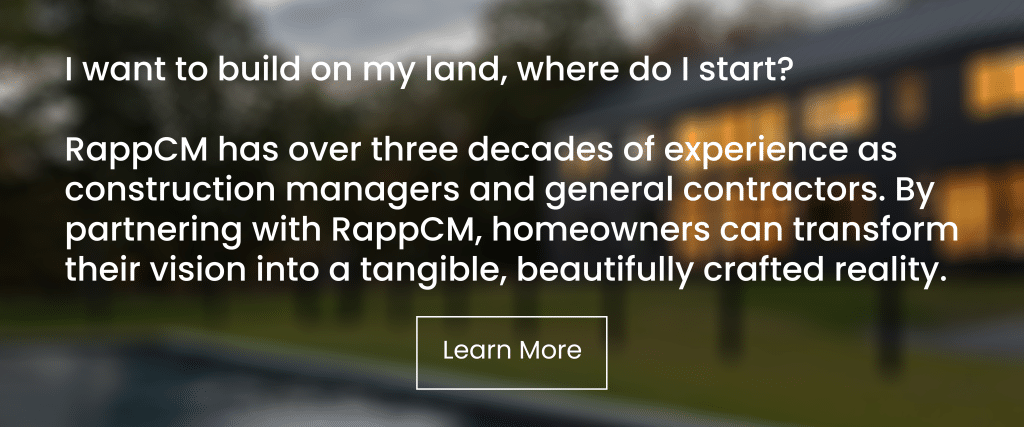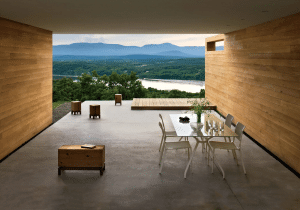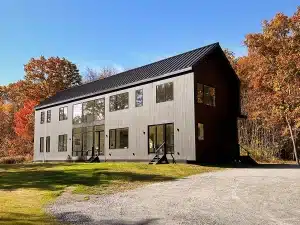Building a home requires considerate financial planning to ensure the project runs smoothly and stays within budget. There are a number of preparations that homeowners can make before they build a new home. Whether you’re preparing to find and build with a custom home builder in New York or not, follow these steps to prep for your home build.
In this article:
- How to Financially Prepare to Build a House?
- Is It Financially Smart to Build a House?
- How Much Money Should You Have Before Building a House?
- Is It Financially Better to Buy or Build a House?
How to Financially Prepare to Build a House?
When preparing for this endeavor, it’s crucial to understand the financial steps to build a house. This includes budgeting, assessing financing options, determining a loan type and down payment, as well as estimating building costs.
Assess Your Budget and Financing Options
First, determine your overall budget by considering both construction costs and additional expenses such as permits, design fees, and landscaping. Construction loans come in various forms to suit different needs. Here are some general construction loan options available to prospective homeowners:
- VA loans, available to military members and veterans, and USDA loans, for rural buyers, both offer 0% down payments.
- Traditional mortgages require as little as 3% down.
- FHA loans need a 3.5% down payment for credit scores of 580 and above, while scores between 500 and 579 require 10%.
- Jumbo loans are used for larger amounts that exceed conforming loan limits and typically require 5-10% down.
Down Payment and Contingency Fund
According to the National Association of Realtors, 2023’s average down payment for first-time home buyers was around 8%. However, a down payment of over 20% can help avoid the cost of mortgage insurance. This could save about $30-$70 per month for every $100,000 borrowed.
Furthermore, experts recommend setting aside a contingency fund that totals 10-15% of your budget, to cover unexpected expenses. This financial cushion ensures that you can handle any surprises without derailing your project.
Detailed Cost Estimation
Work with your contractor or construction manager to create a detailed cost estimation before starting the construction process. The best home builders will itemize the cost of building, from materials and labor to permits and utility hookups. They will provide detailed planning that ensures you’re financially prepared for building your dream home.
RappCM builds luxury custom homes of any size, from a modern farm home (above) to a large traditional Hudson Valley estate.
Is It Financially Smart to Build a House?
While the initial costs may be higher, avoiding the immediate maintenance and renovation expenses associated with older homes can lead to significant savings in the early years of new homeownership. Building a new home can cut down on costly renovations, while having the perfect design from the outset.
How Much Money Should You Have Before Building a House?
The two major costs that should be covered before starting a home build is your construction loan’s down payment and a contingency fund. As previously mentioned, the National Association of Realtor’s 2023 report tells us that the average down payment for first-time home buyers is around 8%. With other experts recommending a 5-10% contingency fund, homeowners should plan to have at least 18% of the construction loan’s value.
Raising this percentage will help save costs in the long run and offer a larger financial cushion. A higher down payment results in more equity, reducing the risk of being underwater if property values drop. Additionally, this also typically results in a lower interest rate and smaller monthly mortgage payments.
The expert contractors at RappCM excel in building the uniquely designed in the Upper Hudson Valley. Contact them to manage your custom home build.
Is It Financially Better to Buy or Build a House?
According to HomeAdvisor, building a house can be more cost-effective than purchasing an existing home, especially when compared to the 2023 median home sales price reported by HUD. Researching and securing the best deals on land, particularly in less developed but accessible areas, can further reduce costs.
For example, RappCM has provided extensive construction management services in the Hudson region, offering close proximity to New York City at comparatively lower residential costs. In these areas, the cost to build a house if you already own the land becomes significantly cheaper.
Conclusion
Financially preparing to build a house involves careful planning and a clear understanding of the associated costs. By assessing your budget, securing appropriate financing, and planning for contingencies, you can embark on your home-building journey with confidence. Whether you’re working with custom home builders in New York or embarking on a more DIY project, this article provides insights that any “Steps to Building a House” checklist should include.




